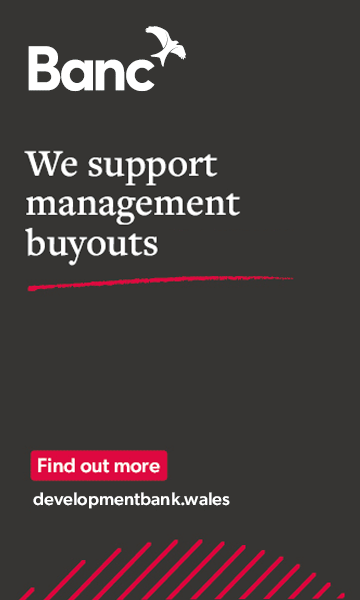Activity in the commercial property market in Wales remained weak at the beginning of this year, according to the latest Royal Institution of Chartered Surveyors (RICS) Commercial Property Monitor as the industry continues to face a challenging environment.
Occupier demand remained in negative territory for the third consecutive quarter with -23% of respondents reporting a fall. Indeed, the indicator for Wales was weaker than in any other UK region.

Looking at the sector breakdown, both retail and office property saw decreases in occupier demand, with net balances of -36% and -33% of respondents respectively, whilst industrial demand was reported to fall flat.
In relation to demand from investors, the net balance was -14% in Q1 2023, an improvement from -48% in Q2 2022. Both office and retail continued to see declines in investment enquiries (net balances of -27% and -33% of respondents respectively). However industrial space saw increases in investment enquiries with 18% of respondents reporting a rise, up from -35% the quarter previous.
As a result, expectations for rents and capital values continued on a downward trajectory. A net balance of -32% of respondents overall in Wales indicated that they expect net capital values to fall over the next quarter, with only the industrial sector expecting to see a rise, albeit at a modest rate with a net balance of 10% of respondents expecting an increase.
Meanwhile, a net balance of -29% of respondents expects a fall in rents over the next three months. Similar to that of net capital values, rents for both retail and office property are expected to fall (-30% and -67% respectively), with industrial rent expectations predicted to rise with a net balance of 10% of respondents.
Richard Baddeley of Richard Baddeley & Company in Conwy added:
“The market across all sector is fairly languid but the budget proposals for Anglesey with additional funding for Welsh Government is welcomed.”
Richard Ryan from Fletcher Morgan in Cardiff says:
“With occupier demand in both the retail warehouse and industrial sectors proving resilient, this, combined with limited available space and few new developments under construction, should lead to rental growth, provided other occupational costs remain affordable. Similarly, given the recent inflation in construction costs, together with the softening of investment yields, it is unlikely new developments will be viable unless occupiers are prepared to pay higher rents.”
At a UK level, the overall tone of the latest feedback is not as downbeat as last quarter. The industrial sector showed renewed momentum, evidenced by near-term capital value expectations turning positive following the sharp downward adjustment seen at the end of last year.
Commenting on the UK picture, Senior Economist for RICS, Tarrant Parsons, added:
“Although the picture across the UK commercial property market remains generally subdued in the face of higher interest rates and a soft economic outlook, the latest survey feedback tentatively suggests that the most difficult period for the market may now have passed.
“Indeed, capital value expectations for industrial assets returned to modestly positive territory having fallen sharply at the end of last year. This improvement has been supported by still solid occupier conditions across the sector, with demand for industrial space continuing to outstrip supply.
“Likewise, many of the more alternative sectors such as aged care facilities, life sciences, data centres and student housing display a resilient outlook for the year ahead. By way of contrast, secondary office and retail properties continue to struggle, evidenced by rental and capital value projections remaining deeply negative across both segments for the coming twelve months”.























